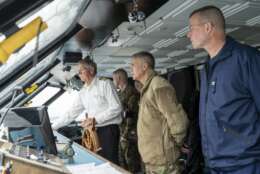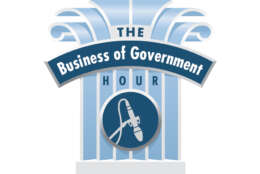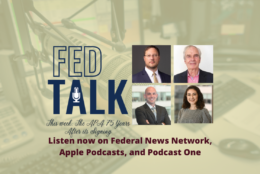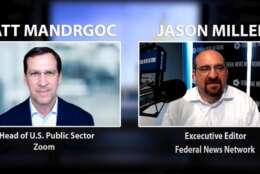Analysis
-
Hosted by Dr. Richard Shurtz and Jim Russ. Sponsored by Stratford University. Why you shouldn’t scan just any old QR code on posters and signs. And we learn about the father of the IBM PC.
August 16, 2021 -
Hosted by Dr. Richard Shurtz and Jim Russ. Sponsored by Stratford University. We tell you where we think IT is going and what skills will be needed in the future. And we share the life story of the father of fiber optics.
August 16, 2021 -
This content is written by Jim Richberg, the public sector CISO for Fortinet Federal. I spent a lot of years working for the Federal government. Long enough that I can tell stories about technology few…
August 11, 2021 -
Cybersecurity will need to become a central focus for the Coast Guard and Navy as new war capabilities develop, military officials say.
August 11, 2021 -
Artificial Intelligence is widely used, but how do we know it's working appropriately? What prompted the Government Accountability Office (GAO) to develop an AI Accountability Framework? What are the core principles of this framework? Join host Michael J. Keegan as he explores these questions and more with Taka Ariga, Chief Data Scientist and Director of the Innovation Lab at GAO and Steve Sanford, Managing Director, Strategic Planning and External Liaison at GAO.
August 10, 2021 -
The key to discovering and dealing with emerging forms of cybersecurity threats, according to Ronald Nielson, the executive vice president of LookingGlass, is an updated form of threat hunting. He emphasized, it’s important to understand you can deal with such attacks before data is lost or held for ransom.
August 09, 2021 -
This week, hosts Mark Masselli and Margaret Flinter speak with Dr. Leana Wen, emergency physician, former Baltimore Health Commissioner, and medical analyst for CNN. Dr. Wen’s new book, “Lifelines: A Doctor’s Journey in the Fight for Public Health” addresses the dramatic failings of the public health system to adequately address the pandemic, the need to create a more coordinated national and international public health system and the way forward through the pandemic.
August 09, 2021 -
This year marks the 75th Anniversary of the Administrative Procedure Act (APA). This “super statute” governs the way administrative agencies develop and issue regulations and allows for oversight of agency actions by federal courts. On FEDtalk this week, our guests take a brief look at the history of the APA and how the law has evolved over the last 75 years. Finally, the group discusses modern issues in administrative law and how these challenges impact the civil service.
August 06, 2021 -
“There's this massive influx of new applications that need to be deployed, new sets of data. Yet the IT admins aren’t really growing at the same kind of rate. So because of that, the idea is you need to start adopting more automation to really kind of bridge that gap,” said Garrett Clark, director Ansible GTM at Red Hat.
August 06, 2021 -
2020 was the first time in history the U.S. Census included an option to respond online. Wanting to find ways to encourage engagement, the U.S. Census Bureau created a public-facing map of responses by neighborhood…
August 05, 2021 -
Lashanda Hodge, the managing director of customer experience for GSA’s Center of Excellence, said helping agencies focus across five core areas will help break down siloes and bring data and people together.
August 04, 2021 -
This content is provided by Gordian. Infrastructure is in the spotlight once again as the Senate moves forward on its infrastructure bill. Part of that involves the modernization of existing federal buildings and construction of…
August 03, 2021 -
Cybersecurity has become a data-driven activity. Predicting, responding to, mitigating and post-facto analysis of cybersecurity events all rely on having the applicable data available at the right time. Data itself originates in a variety of…
August 02, 2021 -
Hosted by Dr. Richard Shurtz and Jim Russ. Sponsored by Stratford University. The best mouse we have ever used. And we tell you about the computer developer whose life story is a cautionary tale about protecting your intellectual property.
August 02, 2021 -
Matt Mandrgoc, the head of US public sector at Zoom, said the pandemic showed three things: Incumbent technologies were not necessarily scalable to satisfy the needs of the mass remote work environment; the culture change brought on by mass telework will be permanent; and cloud services were critical to all of these successes.
July 30, 2021














